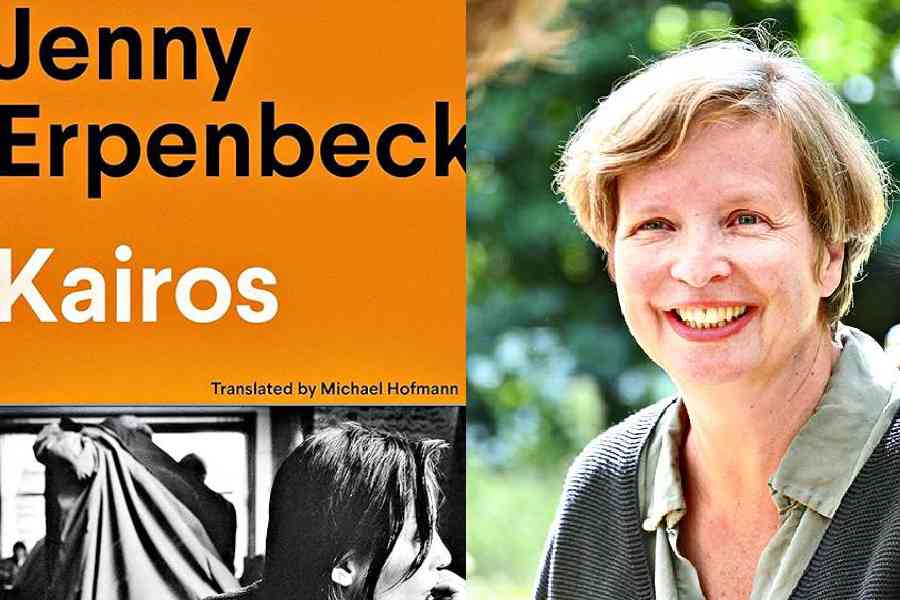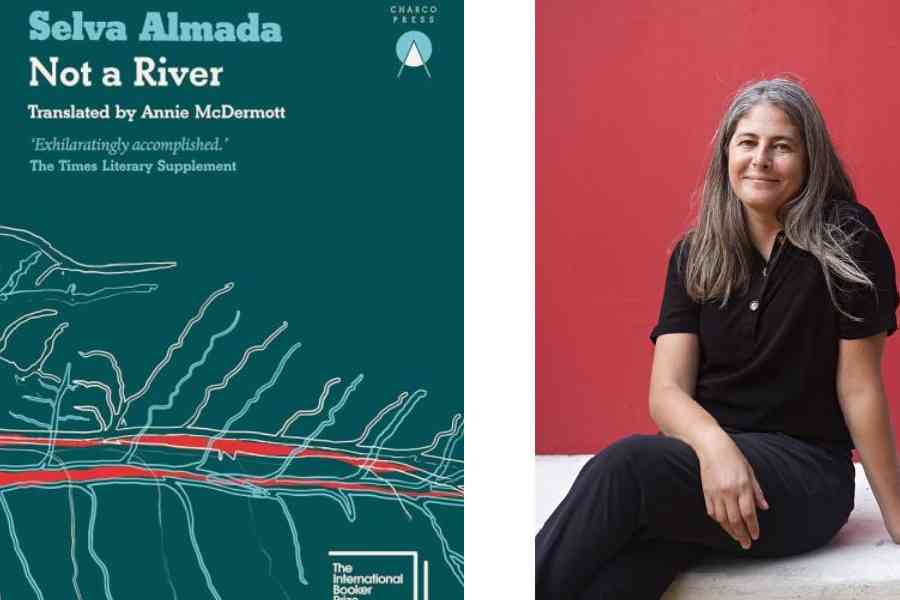The 2024 edition of the International Booker Prize will be announced today and this year it brings literary works from six countries, translated from six languages. To be held at the Turbine Hall at London’s Tate Modern, the shortlist was chosen from a longlist of 13 titles announced in March, which was selected from 149 books published in the UK and/or Ireland between May 1, 2023, and April 30, 2024. Though there are no Indian authors on the list this year, it still holds importance for its personal-political poignant perspectives. We get you a brief on the shortlisted titles so that you can add them to your reading list.
Not A River by Selva Almada
Penned by Spanish author Selva Almada, Not A River is a compelling novel set in a rural Argentine town, delving into the intertwined lives of its inhabitants. Almada masterfully explores themes of loss, memory, and human connection against the backdrop of a mysterious, almost mythical river. Her lyrical prose and vivid descriptions bring to life a world where the past and present blur, and the river itself seems to hold the town’s secrets. Translated by Annie McDermott, through its richly developed characters and haunting atmosphere, the book offers a poignant meditation on the enduring impact of personal and communal histories.
Kairos by Jenny Erpenbeck
Jenny Erpenbeck intricately weaves a tale of personal and political turmoil in Kairos, translated from German by Micheal Hofmann. A poignant exploration of a tumultuous love affair set against the backdrop of East Germany’s final years, the novel reflects the era’s uncertainties. With remarkable finesse, Erpenbeck’s prose captures the intensity and fragility of the relationship between a young woman and an older man, highlighting themes of power, betrayal, and the passage of time. The title, Kairos, denotes a fleeting moment of opportunity, underscoring the lovers’ desperate grasp at happiness amidst societal collapse.

Kairos by Jenny Erpenbeck, translated from German by Michael Hofmann, Jenny Erpenbeck
The Details by Ia Genberg
The Details by Ia Genberg is not just a novel but a celebration; an introspective novel that delves into the nuances of human relationships and memory. Through a series of vignettes, the narrator reflects on pivotal connections in her life, examining how these encounters have shaped her identity. Genberg’s writing is both tender and incisive, capturing the subtle complexities of love, friendship, and loss. Translated from Swedish by Kira Josefsson, the novel’s fragmented structure mirrors the way memories surface and intertwine, offering a deeply personal yet universally resonant exploration of how the details of past experiences linger and influence the present.

Mater 2-10 by Hwang Sok Yong
Set against the backdrop of Korea’s tumultuous 20th-century history, Mater 2-10 by Hwang Sok-yong is a powerful novel that intertwines personal and historical narratives to explore themes of memory, displacement, and resilience. The story follows its characters in this multi-generational tale, as they navigate the complexities of war, occupation, and societal change. Originally written in Korean and translated by two talented translators — Sora Kim-Russell and Youngjae Josephine Bae, Hwang’s masterful storytelling delves deep into the human spirit, revealing how individuals cope with trauma and strive for meaning amidst chaos. Rich in cultural and emotional detail, Mater 2-10 offers a poignant reflection on the enduring scars of history and the persistent hope for reconciliation and healing.
Crooked Plough by Itamar Vieira Junior
Portuguese author Itamar Vieira Junior’s Crooked Plough is anchored on his two characters — sisters Bibiana and Belonisia. Set in Brazil’s rural Bahia, the novel explores their lives as they grow up in a community of descendants of enslaved Africans. Translated from Portuguese by Johnny Lorenz, the fascinating story weaves elements of magical realism with stark social commentary, addressing the struggles of marginalised communities. The sisters’ bond and resilience highlight their fight against systemic oppression and their quest for justice and dignity.
What I’d Rather Not Think About by Jente Posthuma
An extremely intimate read, What I’d Rather Not Think About by Dutch novelist Jente Posthuma is an evocative exploration of grief and memory. The novel delves into the protagonist’s struggle to cope with the death of her twin brother, offering a raw and intimate portrayal of loss. Posthuma’s writing is notable for its lyrical prose and keen psychological insights, but some readers may find the narrative’s introspective nature and fragmented structure challenging. Overall, it’s a compelling yet sombre meditation on the complexities of mourning and identity by an author who is known for her razor-sharp prose.











